What is activated carbon?
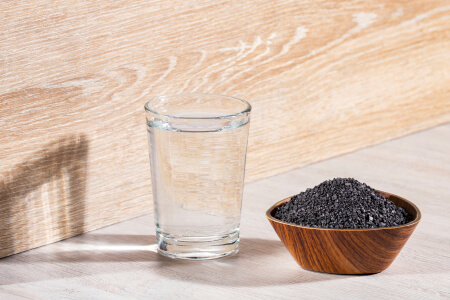
Activated carbon, often referred to as activated charcoal, is a highly porous form of carbon characterized by an extensive internal surface area created through a process of activation. Derived from organic materials like wood, coconut shells, or coal, activation involves subjecting these substances to high temperatures in a controlled environment, resulting in the formation of a vast network of pores and crevices within the carbon structure. This unique porous structure grants activated carbon an exceptional ability to adsorb a wide array of impurities, contaminants, and pollutants from liquids and gases.
Water treatment types
Water is the most precious resource. People always need clean and safe drinking water, and industry also needs specially treated water for manufacturing. Zhulin Carbon always provide the most effective way to improve water quality. Its application ranges from small-scale household use, such as water filters, to large scale of treating water in large municipal plants.• Water filter
• Aquarium
• Bottle water
• Beverage water treatment
• Urban water treatment project
• Purification of iron and mechanical impurities of steam condensate
• Drinking water (Dechlorination)
• Removal salt from water
• Ultrapure water treatment
• Sewage treatment (food factory, coking plant, electroplating factory, thermal power plant)
What type of carbon is used in water treatment?
Activated carbon used in water treatment is usually made of different materials and shapes to meet the requirements of different water quality problems. The most common activated carbon materials include coal-based activated carbon and coconut shell activated carbon. The preparation methods and raw materials of these activated carbons determine their surface characteristics and pore structure, thereby affecting their effectiveness in water treatment.Coconut activated carbon
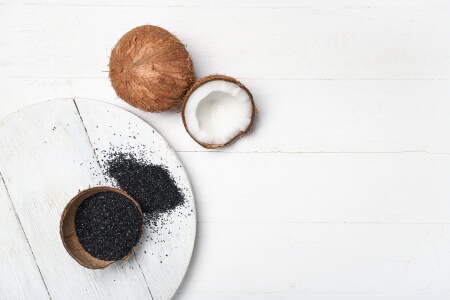
Coconut shell activated carbon is a common and efficient water treatment medium, often used in filters to remove residual chlorine and organic pollutants from water. Its preparation process is derived from natural coconut shell raw materials. This activated carbon has an extremely fine pore structure and a huge specific surface area, which gives it excellent adsorption capacity and helps remove impurities and odors from water. Mainly through adsorption, coconut shell activated carbon can efficiently absorb harmful substances such as residual chlorine and improve the taste and quality of water.
• Size: 30*60mesh, 12*40mesh, 8*30mesh
• Iodine: ≥900mg/g
• Application: drinking water
Coal pellet activated carbon
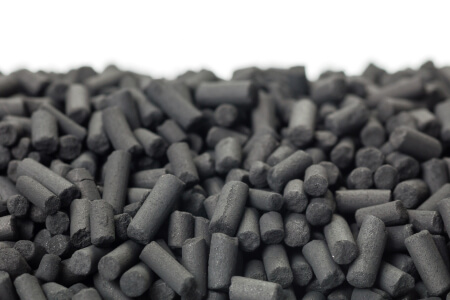
As a water treatment media, coal-based columnar activated carbon is favored for its high strength and durability. Its structure is sturdy and not prone to debris, ensuring pure water quality; at the same time, its excellent impact resistance allows it to remain stable under high pressure or violent water flow conditions. This reliability makes it an ideal water treatment medium, capable of long-lasting and stable filtration and purification of water sources, ensuring the reliability and stability of water quality.
• Size: 3mm, 4mm, 6mm
• CTC: ≥40%
• Application: industrial water treatment
Coal granular activated carbon
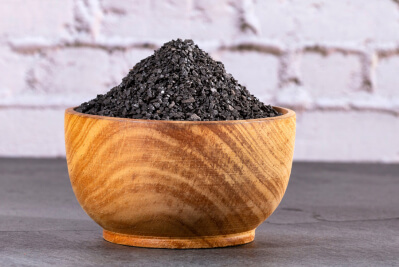
Coal-based granular carbon, as a common medium in the field of water treatment, is favored because of its low cost and excellent economic benefits. Its relatively low preparation cost gives it a competitive advantage in the water treatment market, providing an affordable solution for water treatment projects of all sizes. Despite its low cost, coal-based granular carbon still exhibits good adsorption capacity and efficient filtration characteristics, and can effectively remove organic matter, odors and pollutants in water, thereby improving water quality.
• Size: 8*30mesh, 12*40mesh, 20*50mesh, 30*60mesh
• Iodine: ≥500mg/g
• Application: drinking water & wastewater
Coal powder activated carbon
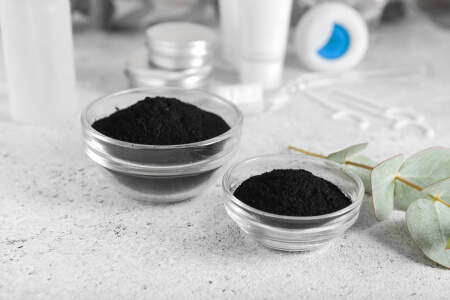
Coal-based powdered activated carbon is widely used in water treatment, mainly used for sewage treatment in reservoirs. This kind of powdered carbon has high adsorption properties and can quickly absorb impurities such as organic matter, microorganisms, odors and pigments in the water, thereby improving the quality and transparency of sewage.
• Size: 200mesh
• Iodine: ≥700mg/g
• Application: wastewater treatment
FAQ about activated carbon for water treatment
Is activated carbon safe for drinking water?
Activated carbon is generally safe for treating drinking water, known for its effectiveness in removing impurities and contaminants. However, the safety of activated carbon relies on factors like its source, specific water contaminants, and proper maintenance. When used in accordance with standards and maintained correctly, activated carbon is considered safe for purifying drinking water by effectively eliminating various pollutants.Does activated charcoal remove bacteria from water?
The ability of activated carbon itself to remove bacteria from water is relatively limited. However, activated carbon impregnated with silver can effectively perform bactericidal effects. The addition of silver impregnated activated carbon gives it antibacterial properties, which can effectively inhibit and kill some microorganisms in the water.Does activated carbon reduce water hardness?
Activated carbon primarily targets organic compounds, chemicals, odors, and some dissolved substances in water through adsorption. However, it doesn't effectively reduce water hardness. Water hardness is primarily caused by dissolved minerals like calcium and magnesium ions. Generally, anthracite as a cushion, can be applied to soften water.How much activated carbon is needed to filter water?
The quantity of activated carbon required for water filtration varies based on factors like the type and concentration of contaminants, flow rate, and desired water quality. As a general guideline, around 1 gram of activated carbon per liter of water is commonly used, yet this can fluctuate depending on specific filtration needs. Accurate determination of the needed amount involves considering diverse parameters to ensure effective removal of impurities and optimal water quality.What is the use of activated carbon in water treatment?
Activated carbon plays a crucial role in water treatment by adsorbing a wide range of contaminants, improving taste, and reducing odors. Its extensive surface area and porous structure make it highly effective in trapping organic compounds, chlorine, pesticides, and other pollutants. This not only purifies the water but also significantly enhances its taste and smell, making it safer and more pleasant to consume.
Conclusion about activated carbon for water treatment
Activated carbon stands as a vital player in water treatment, effectively eliminating impurities, chemicals, and odors to enhance water quality. Whether it's for municipal treatment plants or individual household filtration systems, Zhulin Carbon's range of activated carbon products and their dedication to quality and innovation make them the go-to choice for achieving cleaner, safer water.

